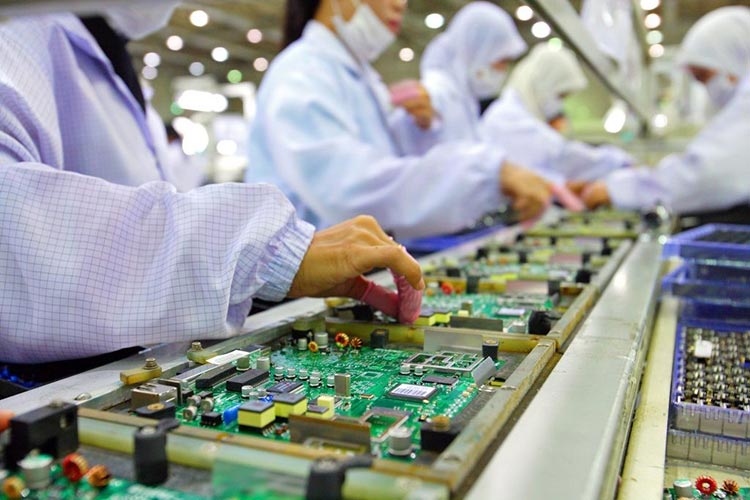
On 31st March 2023, the New Foreign Trade Policy (FTP), 2023 was released by the Minister of Commerce and Industry, Piyush Goyal, along with the Handbook of Procedures (HBP), 2023. The same has been notified by the Directorate General of Foreign Trade (DGFT) on 1 April 2023. The new policy is of great relevance for the Electronics Systems Design & Manufacturing (ESDM) Industry which contributes to a significant chunk of imports, exports, as well as is a large contributor in E-Commerce. The new FTP 2023 will also enable achieving India’s ambitious export target for the Electronics industry which is over US$ 16 Bn in the current Financial year. This has to be increased exponentially to over US$ 100 Bn if India needs to achieve the ambitious target of US$ 300 Bn of electronics production by 2026. In the policy, various alterations have been made to shift the focus to tax remissions from incentives. It is also looking for greater assistance via automation, technology and constant process re-engineering. Most importantly, the core attention has been given to the emerging regions such as e-commerce exports, developing districts as export hubs etc.
According to the Press Information Bureau, the minister told the media, "The policy is dynamic and has been kept open ended to accommodate the emerging needs of the time. He stated that the policy had been under discussion for a long time and has been formulated after multiple stakeholder consultations. India's overall exports, including services and merchandise exports, has already crossed US$ 750 Billion and is expected to cross US$ 760 Billion this year."
“The remarkable achievement in the overall export figure of crossing US$ 760 Billion in these challenging times across the world has been the result of enthusiasm and encouragement pumped in by the Prime Minister. This achievement is in sync with the target set in the roadmap in 2021 after the interaction with the Prime Minister. Every opportunity for export must be captured and utilized effectively. In the next 5 months during India’s G20 presidency there should be a massive concentrated outreach with the world both sector-wise and country-wise,” added Minister Goyal.

How FTP Is Going To Be A Game-changer For India’s Electronics Industry
On four important pillars, the FTP policy is completely relied on viz., incentive to remission, export promotion through collaboration, ease of doing business, and e-initiatives.
According to the industry body ELCINA, the key highlights of the FTP include the following among others:
- There is no end date to the new policy. Subsequent revision(s) shall be done as and when required.
- Approvals for various permissions under FTP shall now be online without any physical interface.
- Reduction in user charges for MSME under Advance Authorization (A) and Export Promotion Capital Goods (EPCG) schemes.
- Revamp of e-Certificate of Origin (CoO) platform for self-certification of CoOs as well as automatic approval of the same is proposed, where feasible.
- Paperless filing of export obligation discharge applications for greater use of technology
- Facilitation of e-commerce export by extending all FTP benefits to such exports.
- Introduction of a special one-time amnesty scheme for one-time settlement of default in export obligations.
- With no sunset date, the policy appears to be dynamic with long-term focus ensuring certainty and support to the export industry in India as well as FDIs. Effective implementation of Policy will be key to its success.
- Automation of processes and paperless filing of applications may aid in ease of doing business objectives of the Government. Businesses will need to adapt their systems to such digitized procedures.
- A lot of MSME players are an essential part of the Electronic Industry and help in its growth. Reduction in user charges in case of AA and EPCG schemes for MSMEs is likely to reduce the operational cost and encourage further exports by such enterprises.
- The establishment of E-Commerce Hubs and ONDC (Open Network for Digital Commerce) shall form an essential support system to the Electronics industry to promote its growth. They may also facilitate significant growth in digital cross border trade.
Highlighting the importance of FTP in India’s electronics industry, Sanjay Agarwal, President ELCINA & MD, Globe Capacitors said, “As we are aware that this policy was long awaited and brings about a major shift in India’s approach to foreign trade, simplifying the import procedures and export promotion. With this policy, we hope that India will be able to achieve the ambitious export target of the electronics industry of over 16 million dollars in the current FY and it has to cross 100 billion if we want to have the electronic production of around 300 billion by the end of 2026.”
Moreover, Pankaj Jain, who is the director at Ernst & Young (EY) also stated that the FTP 2023 changes the approach from incentive based to tax remission-based model. Obviously, there are no more MEIS/SEIS based schemes. The policy sticks to basic schemes of AA, DFIA, RoSCTL, RoDTEP, EPCG etc. Exports would be promoted through collaboration between exporters, states, and districts. Also, there would be special focus on emerging areas such as e-commerce exports, developing districts as export hubs, streamlining Special Chemicals, Organism, Materials, Equipment and Technologies (SCOMET) policy etc.

The Strategies to Lead India’s Electronics System Design
During the period of 2015-2020, when the foriegn trade policy aimed to target exports of USD 900 billion by the end of 2020 and later it was extended for three years until the end of March 2023. Now, the government is looking forward to escalate the nation’s total exports to USD 2 trillion by the end of 2030, with similar contributions from the service sectors as well as merchandise. Alliances with exports and with the guidelines of trust, the FTP is centered on and is looking to formulate seamless automation and re-engineering to craft trouble free trade for the exporters.
Now, in the cross-border business, the government is also aiming to encourage the utilization of the Indian currency, assisted by the new-fangled payment settlement scheme unleashed by the RBI in July 2022. The FTP is promoting development of the electronics industry and export promotion along with wiping out the incentive schemes to a regime which is facilitating based on technology and the proposition of partnerships.
Going Forward, Kartik Kalra, Manager at Ernst & Young (EY) said, "The FTP 2023-28 places significant emphasis on SCOMET policy and aims to streamline the licensing process for the export of dual-use items. The policy aims to consolidate all policies related to the export of dual-use items under SCOMET at one place to simplify the process and make it easier for industry compliance. The policy also aims to make the export of SCOMET items more globally competitive and facilitate the export of dual-use high-quality goods and technology. These initiatives are essential for India to achieve its export targets and remain a competitive player in the global market.”





